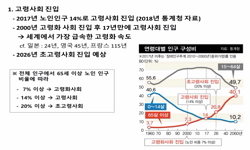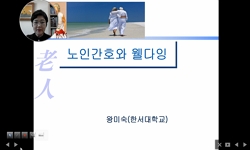Purpose: To investigate the short-term safety of antidiuretic hormone in elderly patients with nocturnal polyuria, focus on hyponatremia and others electrolytes disturbances and to assess short-term effects on nocturnal urine output and number of noct...
http://chineseinput.net/에서 pinyin(병음)방식으로 중국어를 변환할 수 있습니다.
변환된 중국어를 복사하여 사용하시면 됩니다.
- 中文 을 입력하시려면 zhongwen을 입력하시고 space를누르시면됩니다.
- 北京 을 입력하시려면 beijing을 입력하시고 space를 누르시면 됩니다.
https://www.riss.kr/link?id=A101597511
- 저자
- 발행기관
- 학술지명
- 권호사항
-
발행연도
2010
-
작성언어
English
- 주제어
-
등재정보
KCI등재,SCIE,SCOPUS
-
자료형태
학술저널
- 발행기관 URL
-
수록면
227-231(5쪽)
-
KCI 피인용횟수
2
- 제공처
- 소장기관
-
0
상세조회 -
0
다운로드
부가정보
다국어 초록 (Multilingual Abstract)
Purpose: To investigate the short-term safety of antidiuretic hormone in elderly patients with nocturnal polyuria, focus on hyponatremia and others electrolytes disturbances and to assess short-term effects on nocturnal urine output and number of nocturnal voids.
Methods: Between June 2005 and August 2006, a total of 34 patients with nocturnal polyuria were orally administered 0.2 mg desmopressin tablet at bedtime for two weeks. Serum sodium, others electrolytes, urine sodium and urine osmolarity were assessed in the third days, one week and two weeks after treatment with desmopressin and compared adult group (<65 years of age) with elderly group (≥65 years of age). We assessed the effect of desmopressin using a frequency-volume charts and analysed.
Results: In total 34 patients (20 adult, 14 elderly) were analyzed. Desmopressin treatment did not significantly change serum and urine electrolytes include soduim concentration in elderly patients comparied with adult patients. Serum sodium concentration below normal range was recorded in 2 patients in elderly group, but no serious adverse events occurred and recovered without sequelae. The mean number of nocturnal voids decresed (54% reduction) and nocturnal urine output decreased (57% reduction) after using desmopressin.
Conclusions: Desmopressin was well tolerated and effective in elderly patients with nocturnal polyuria without clinically significant hyponatremia.
참고문헌 (Reference)
1 Sommer P, "Voiding patterns in men evaluated by a questionnaire survey" 65 : 155-160, 1990
2 Homma Y, "Urinary symptoms and urodynamics in a normal elderly population" 15 : 1994
3 Simonsen O, "The significance of age on symptoms and urodynamic-and cystoscopic findings in benign prostatic hypertrophy" 15 : 355-358, 1987
4 Weatherall M, "The risk of hyponatremia in older adults using desmopressin for nocturia: a systematic review and meta-analysis" 23 : 302-305, 2004
5 Chute CG, "The prevalence of prostatism: a population-based survey of urinary symptoms" 150 : 85-89, 1993
6 Asplund R, "The nocturnal polyuria syndrome (NPS)" 26 : 1203-1209, 1995
7 Kim ET, "The etiology and classification of nocturia in adults" 42 : 1075-1079, 2001
8 Hunsballe JM, "Single dose imipramine reduces nocturnal urine output in patients with nocturnal enuresis and nocturnal polyuria" 158 (158): 830-836, 1997
9 Chang YL, "Short-term effects of desmopressin on water and electrolyte excretion in adults with nocturnal polyuria" 177 : 2227-2229, 2007
10 Miller M, "Nocturnal polyuria in older people: pathophysiology and clinical implications" 48 : 1321-1329, 2000
1 Sommer P, "Voiding patterns in men evaluated by a questionnaire survey" 65 : 155-160, 1990
2 Homma Y, "Urinary symptoms and urodynamics in a normal elderly population" 15 : 1994
3 Simonsen O, "The significance of age on symptoms and urodynamic-and cystoscopic findings in benign prostatic hypertrophy" 15 : 355-358, 1987
4 Weatherall M, "The risk of hyponatremia in older adults using desmopressin for nocturia: a systematic review and meta-analysis" 23 : 302-305, 2004
5 Chute CG, "The prevalence of prostatism: a population-based survey of urinary symptoms" 150 : 85-89, 1993
6 Asplund R, "The nocturnal polyuria syndrome (NPS)" 26 : 1203-1209, 1995
7 Kim ET, "The etiology and classification of nocturia in adults" 42 : 1075-1079, 2001
8 Hunsballe JM, "Single dose imipramine reduces nocturnal urine output in patients with nocturnal enuresis and nocturnal polyuria" 158 (158): 830-836, 1997
9 Chang YL, "Short-term effects of desmopressin on water and electrolyte excretion in adults with nocturnal polyuria" 177 : 2227-2229, 2007
10 Miller M, "Nocturnal polyuria in older people: pathophysiology and clinical implications" 48 : 1321-1329, 2000
11 Miller M, "Nocturnal polyuria in older people: pathophysiology and clinical implications" 48 : 1321-1329, 2000
12 Asplund R, "Nocturia, nocturnal polyuria, and sleep quality in the elderly" 56 : 517-525, 2004
13 Barker JC, "Nocturia in the elderly" 28 : 99-104, 1988
14 Asplund R, "Nocturia in relation to sleep, health, and medical treatment in the elderly" 96 (96): 15-21, 2005
15 Weiss JP, "Nocturia in adults:etiology and classification" 17 : 467-472, 1998
16 Weiss JP, "Nocturia" 163 : 5-12, 2000
17 Imai K, "Nippon Hinyokika Gakkai Zasshi" 82 : 1790-1799, 1991
18 Chang SC, "Multifactorial nature of male nocturia" 67 : 541-544, 2006
19 Weiss JP, "Evaluation of the etiology of nocturia in men: the nocturia and nocturnal bladder capacity indices" 18 : 559-565, 1999
20 Mattiasson A, "Efficacy of desmopressin in the treatment of nocturia: a double-blind placebo-controlled study in men" 89 : 855-862, 2002
21 Mattiasson A, "Efficacy of desmopressin in the treatment of nocturia: a double-blind placebo-controlled study in men" 89 : 855-862, 2002
22 Rembratt A, "Desmopressin treatment in nocturia;an analysis of risk factors for hyponatremia" 25 : 105-109, 2006
23 Rembratt A, "Desmopressin in elderly patients with nocturia: short-term safety and effects on urine output,sleep and voiding patterns" 91 : 642-646, 2003
동일학술지(권/호) 다른 논문
-
Conservative Management of Female Incontinence
- 대한배뇨장애요실금학회
- 김장환
- 2010
- KCI등재,SCIE,SCOPUS
-
- 대한배뇨장애요실금학회
- 정윤석
- 2010
- KCI등재,SCIE,SCOPUS
-
Laparoscopic Removal of a Broken Sewing Needle in a Patient with Irritative Bladder Symptoms
- 대한배뇨장애요실금학회
- 이준택
- 2010
- KCI등재,SCIE,SCOPUS
-
- 대한배뇨장애요실금학회
- 김수진
- 2010
- KCI등재,SCIE,SCOPUS
분석정보
인용정보 인용지수 설명보기
학술지 이력
| 연월일 | 이력구분 | 이력상세 | 등재구분 |
|---|---|---|---|
| 2023 | 평가예정 | 해외DB학술지평가 신청대상 (해외등재 학술지 평가) | |
| 2020-01-01 | 평가 | 등재학술지 유지 (해외등재 학술지 평가) |  |
| 2012-01-01 | 평가 | 등재 1차 FAIL (등재유지) |  |
| 2010-04-30 | 학술지명변경 | 한글명 : 대한배뇨장애요실금학회지 -> International Neurourology Journal외국어명 : The Journal of Korean Continence Society -> International Neurourology Journal |  |
| 2009-01-01 | 평가 | 등재학술지 선정 (등재후보2차) |  |
| 2008-01-01 | 평가 | 등재후보 1차 PASS (등재후보1차) |  |
| 2007-04-26 | 학술지명변경 | 한글명 : 대한배뇨장애 및 요실금학회지 -> 대한배뇨장애요실금학회지외국어명 : 미등록 -> The Journal of Korean Continence Society |  |
| 2007-03-13 | 학회명변경 | 한글명 : 대한배뇨장애 및 요실금학회 -> 대한배뇨장애요실금학회 |  |
| 2007-01-01 | 평가 | 등재후보학술지 유지 (등재후보1차) |  |
| 2006-03-29 | 학술지명변경 | 한글명 : 대한배뇨장애 및 요실금학회지 Vol.5, No.1 -> 대한배뇨장애 및 요실금학회지 |  |
| 2005-01-01 | 평가 | 등재후보학술지 선정 (신규평가) |  |
학술지 인용정보
| 기준연도 | WOS-KCI 통합IF(2년) | KCIF(2년) | KCIF(3년) |
|---|---|---|---|
| 2016 | 1.74 | 0.51 | 1.26 |
| KCIF(4년) | KCIF(5년) | 중심성지수(3년) | 즉시성지수 |
| 0.96 | 0.75 | 0.628 | 0.03 |






 KCI
KCI







